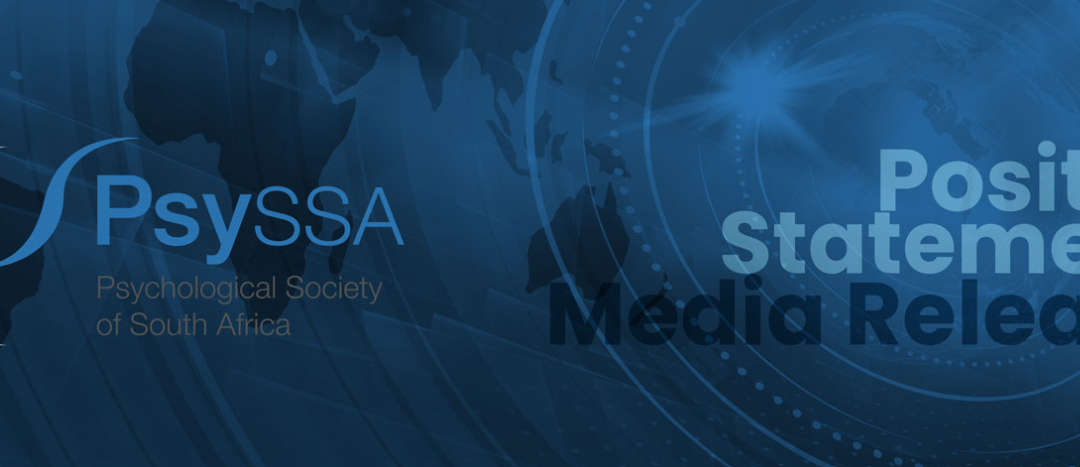A recent Facebook post by Helen Zille, “The ‘trans’ Debate Revisited”, refers. In this post Helen Zille reflects disquiet around trans people and services. We too experience disquiet, but about her intervention.
Therefore, as the Sexuality and Gender Division (SGD) of the Psychological Society of South Africa (PsySSA) we invite Zille to a dialogue. The complexity of trans lives cannot be reduced to 18 numbered points, what is needed is “real talk”, face to face, that respects nuance and is not just point-making rhetoric.
On the surface, Zille’s 18 points look like a fair attempt to “balance” different perspectives. But when you scratch just beneath the surface, the language used – even when it sounds polite – ends up reinforcing harmful stereotypes and deepening the marginalisation of trans people.
This is what many people call symbolic violence – where the damage isn’t physical, but is done through the way people are spoken about, misunderstood, or quietly erased (like trans men, on whom Zille is silent). And it often hides behind “reasonable” language. As a former journalist, Zille knows that language matters.
One key example is the use of the term “biological men” to refer to trans women. On the face of it, that might seem like a neutral or factual term. But in reality, it’s a loaded phrase. It tells a story – not just about bodies, but about trust, threat, and danger. When trans women are constantly framed as “really men,” and men are assumed to be dangerous by default, it creates a false and deeply unfair narrative: that trans women are simply predators in disguise. This is not only untrue – it’s profoundly damaging. It paints an entire group of people with suspicion, just for existing. It also leans on a harmful idea that all men are violent or predatory – which is itself problematic. So the language here is doing double harm.
We must ask: if trans women are consistently framed as deceptive, dangerous, or untrustworthy, what space does that leave for their humanity? For their safety? For their right to live in peace?
Then there’s the issue of trans youth. There’s been a growing panic – often fuelled by media and social media – that children who are questioning their gender are being “pushed” into transitioning too quickly. But this narrative just doesn’t line up with the facts on the ground.
In reality, there are many barriers to transitioning, especially in South Africa. There are long waiting lists, and there is only a small number of knowledgeable healthcare workers, who are overburdened and can only support a small number of clients. Furthermore, families are sometimes unsupportive and school spaces may shame gender non-conforming behaviour – in sum, transitioning is not something young people can simply rush into. In fact, many spend years wrestling with confusion, fear, and rejection before they are even able to speak to someone about it, let alone access any kind of medical support.
So when people claim, “We must protect the children,” but ignore the actual suffering and exclusion that trans youth face every day, it raises an uncomfortable question: which children are we really protecting? And from whom?
Too often, “protect the children” becomes a slogan that’s used not to help trans youth, but to silence them – to cast them as confused, manipulated, or dangerous to others. Notions of “protection” have been used before: against gay and lesbian people. Now they’re aimed at trans people. The target changes, but the effects are as insidious.
Here’s the real issue: we are talking about a small, deeply stigmatised, group of people who are just trying to survive and be recognised. Trans people – especially Black and working-class trans people – face extreme rates of violence, unemployment, and rejection. And yet the public debate keeps painting them as the threat. The harm this does is real, and perhaps we forget that trans people are our sons, daughters, brothers, sisters, mothers and fathers, our kinfolk, not faceless threats to women in bathrooms.
We’ve seen this deployment of dehumanising language before in South Africa. We know how power can dress itself up in politeness. We know how “neutrality” can be used to protect the status quo. We know what it feels like to be spoken about instead of being spoken with.
As a group of psychologists who actually work with sexually and gender diverse communities, we challenge Helen Zille to do two things. Firstly, meet with representatives of trans communities; talk with them, not about them, to their face. Perhaps some learning can happen?
And secondly, we invite her to a dialogue with us, as qualified and professional psychologists. We believe we can bring the nuance, evidence and science this topic deserves. JK Rowling has openly mocked trans people; South Africa, and Zille, are better than this.





